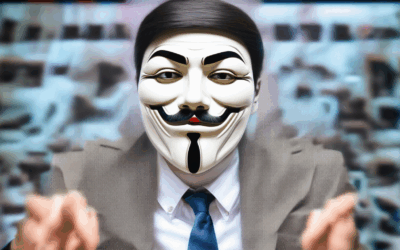In today’s digital age, sharing your thoughts and feelings confidently has become more accessible than ever before. Whether you’re dealing with personal struggles, seeking advice, or simply wanting to vent, the ability to do so without fear of judgment is invaluable. However, finding the right platform or method to share your thoughts anonymously can feel overwhelming. This article explores the various ways to share your thoughts in anonymity, from online forums to real-life interactions, and delves into the psychological and spiritual aspects of doing so. By understanding the power of anonymity, you can find peace in expressing yourself freely, knowing that your thoughts are safe and secure. From famous quotes about confidentiality to practical tips on choosing the right platform, this guide will walk you through everything you need to know about sharing your thoughts in anonymity.
Key Takeaways
– Embracing Anonymity Enhances Freedom of Expression: Share your thoughts confidently knowing your identity remains protected, fostering creativity and openness.
– Anonymity Protects Privacy and Reduces Social Anxiety: It offers a safe space for engagement, alleviating fears of judgment and promoting participation in public discourse.
– Beware the Risks of Anonymity: Misuse can lead to harmful behaviors like cyberbullying and the erosion of trust in online communities.
– Understand the Types of Anonymity: Sender, recipient, and unlinkability define different levels of privacy protection, crucial for digital interactions and compliance with regulations like GDPR.
– Anonymity Teaches Spiritual Lessons: It fosters humility, builds trust, and encourages introspection, as seen in organizations like Alcoholics Anonymous.

Platforms for Anonymous Thought Sharing
- 4chan: A well-known platform for sharing text and images anonymously through various themed “boards.” Users can participate in discussions and share their thoughts without revealing their identities.
- Twitter: While not inherently anonymous, many users share their thoughts using pseudonymous accounts or anonymous handles, allowing for a degree of privacy while expressing opinions publicly.
- Reddit: Offers a mix of anonymous and pseudonymous participation through community-driven forums. Subreddits like r/AskReddit and r/Funny provide spaces for users to share their thoughts and engage in discussions without always revealing their real identities.
- Whisper: A mobile app where users can share anonymous stories, confessions, and thoughts, fostering a supportive and non-judgmental environment for self-expression.
- Forums and Discussion Boards: Many online forums and discussion boards, such as those on Reddit or specialized niche platforms, allow users to share their thoughts anonymously or under pseudonyms, enabling free expression without fear of judgment.
What is an example of anonymity in real life?
Anonymity in real life can be observed in various contexts where individuals choose to conceal their identity for protection, privacy, or other reasons. Here are a few examples:
- Whistleblowing : Anonymous whistleblowers often reveal sensitive information without disclosing their identities to prevent retaliation or legal consequences. This is commonly seen in cases of corporate fraud or government corruption.
- Charitable Acts : People may donate to causes or volunteer their time anonymously, often to avoid recognition or to preserve their privacy.
- Online Communities : In digital platforms, many users engage in discussions or share personal experiences without revealing their real names. This is particularly common on forums dedicated to mental health, social issues, or other sensitive topics.
- Personal Safety : Victims of domestic abuse or stalking may use pseudonyms or remain anonymous when interacting with support services or law enforcement.
- Political Advocacy : Activists or political dissidents may operate under pseudonyms to avoid surveillance or harassment.
These examples illustrate how anonymity is utilized in everyday life to safeguard individual rights and freedoms.

Expressing Feelings Anonymously
If you’re seeking an anonymous space to express your feelings, there are several platforms and methods available:
- Chat Platforms:
- TalkWithStranger offers free chat therapy sessions where you can use a nickname to discuss your feelings in a supportive environment.
- BlahTherapy provides multiple avenues to explore your emotions, often with guest modes that enhance anonymity.
- Discussion Forums:
- AnonyPost allows users to share thoughts and opinions anonymously, fostering open dialogue on various topics.
- Explore private Reddit communities like r/AnonymousConfessions or r/MakeItAnon for non-judgmental spaces to share feelings.
- Image and Text Boards:
- 4chan and 8kun offer anonymous image and text boards for expression, though they may not always provide the most supportive environments.
- Personal Reflection:
- Consider journaling or writing down your feelings in a physical diary for a completely private experience.
Choose a platform that aligns with your specific needs, whether it’s for emotional support, venting, or intellectual discussion. Evaluate each based on community engagement and your comfort level with anonymity.

Anonymity Explained
Anonymity refers to the state of being unknown or unidentifiable, allowing individuals to hide their personal information and engage in activities without fear of judgment or consequences.
Positive Feelings of Anonymity
- Freedom of Expression: Anonymity often emboldens individuals to share their true thoughts and feelings without fear of repercussions, fostering creativity and openness in communication.
- Privacy Protection: In cases where personal privacy is a concern, anonymity provides a safeguard against unwanted attention or invasion of privacy.
- Reduced Social Pressure: Anonymity can alleviate social anxiety, enabling people to participate in social interactions or public discourse from a safer emotional distance.
Negative Feelings of Anonymity
- Risk of Harm: Without accountability, anonymous actions can lead to harmful behaviors such as cyberbullying, harassment, or spreading misinformation online.
- Loss of Trust: Anonymity can sometimes erode trust in online communities, as individuals may hide their true identities behind pseudonyms or screen names.
- Moral Dilemmas: Engaging in anonymous activities can raise ethical questions about the responsibility of one’s actions and the impact they may have on others.
Practical Implications
- Online Privacy Tools: Platforms offering anonymous commenting, messaging, or posting features help users protect their privacy while still contributing to public conversations.
- Responsible Use: While anonymity can offer benefits, it requires responsible usage to prevent misuse and harm to others.
- Regulatory Challenges: Governments and platforms face challenges in balancing the protection of anonymous users with the need to address illegal activities conducted under the guise of anonymity.
The feeling of anonymity can thus be complex, offering both liberation and potential risks depending on how it is utilized and regulated.
The Three Types of Anonymity
Anonymity refers to the state of being unknown or unidentifiable, which can be categorized into three distinct types based on their scope and application:
- Sender Anonymity
- Sender anonymity refers to the inability to trace the origin of information or content. This is often achieved through encryption or pseudonyms, allowing individuals to communicate or share data without revealing their true identity. Examples include encrypted messaging services or anonymous social media platforms like AnonyPost, where users can express their thoughts and opinions without fear of judgment.
-
Recipient Anonymity
- Recipient anonymity protects the identity of those who receive information. This is particularly important in sensitive contexts such as healthcare or legal consultations, where confidentiality is paramount. Systems like secure email services or anonymous feedback forms ensure that recipients remain unseen.
-
Unlinkability of Sender and Recipient
- Unlinkability ensures that the sender and recipient of a communication cannot be matched or connected. This is a fundamental aspect of end-to-end encryption, where messages are encrypted in such a way that even the provider cannot access or link the sender and recipient. This level of anonymity is critical for protecting privacy in scenarios involving sensitive information.
These types of anonymity are often referenced in regulations like the General Data Protection Regulation (GDPR), which defines anonymous data as “data that does not relate to an identified or identifiable natural person.” Ensuring these levels of anonymity is essential for fostering trust and safeguarding individual freedoms in digital interactions.

What Spiritual Lesson Does Anonymity Teach Me?
Anonymity serves as a powerful spiritual tool, offering profound lessons that transcend specific contexts. One of the most notable examples is its role in organizations like Alcoholics Anonymous (AA), where it is emphasized through the Twelfth Tradition as a cornerstone principle.
1. **Humility and Self-Focus**: Anonymity encourages individuals to shift their focus away from external appearances and personal egos. By removing the pressure to reveal one’s identity, participants are compelled to concentrate on their journey of recovery and growth, fostering humility and self-awareness.
2. **Building Trust and Community**: In environments where anonymity is preserved, members feel safer to share personal struggles and experiences. This mutual trust creates a supportive and inclusive community, allowing individuals to connect on a deeper level and learn from one another’s journeys.
3. **Avoiding Distractions**: Anonymity simplifies the process of focusing on personal development and healing. Without the weight of public scrutiny, individuals can dedicate their energy to internal reflection and progress, free from the distractions of external judgment.
In essence, anonymity teaches us to look inward, embrace our shared humanity, and find strength in unity. It reminds us that our paths are unique yet interconnected, encouraging compassion and collective growth.




0 Comments